Car Diagnostic Tool Training is essential for automotive professionals aiming to excel in modern vehicle repair. This training equips you with the knowledge and skills to accurately diagnose and resolve complex automotive issues, enhancing your expertise and career prospects. At CAR-TOOL.EDU.VN, we understand the importance of staying ahead in the rapidly evolving automotive industry, offering comprehensive training resources for both novice and experienced technicians. Equip yourself with the right diagnostic skills, tool knowledge and advanced techniques.
Contents
- 1. What is Car Diagnostic Tool Training?
- 2. Who Needs Car Diagnostic Tool Training?
- 3. Why is Car Diagnostic Tool Training Important?
- 4. What are the Key Components of Car Diagnostic Tool Training?
- 5. What Types of Car Diagnostic Tool Training are Available?
- 6. What are the Benefits of Online Car Diagnostic Tool Training?
- 7. Automotive Electrical Troubleshooting Basics
- 8. How to Choose the Right Car Diagnostic Tool Training Program?
- 9. Common Rail Fuel System
- 10. What Diagnostic Tools are Covered in Car Diagnostic Tool Training?
- 11. EOBD/OBD-II Self-diagnostics
- 12. How Does Car Diagnostic Tool Training Improve Shop Efficiency?
- 13. What are the Career Opportunities After Car Diagnostic Tool Training?
- 14. Hybrid & Electric Vehicle Technology
- 15. What are the Latest Trends in Car Diagnostic Tool Training?
- 16. How Can I Stay Updated with the Latest Car Diagnostic Technologies?
- 17. What are the Costs Associated with Car Diagnostic Tool Training?
- 18. Brake Service and Maintenance
- 19. How to Get Certified in Automotive Diagnostics?
- 20. Starting and Start-Stop System
- 21. Tyre Pressure Monitoring System
- 22. What are Some Tips for Success in Car Diagnostic Tool Training?
- 23. Light Vehicle Proactive Maintenance
- 24. Where Can I Find Car Diagnostic Tool Training Programs?
- 25. Workshop Safety
- 26. Tyre, Rims, and Tyre Work
- 27. Case Study: The Impact of Car Diagnostic Tool Training
- 28. Charging System and Starter Batteries
- 29. Additional Resources for Car Diagnostic Tool Training
- 30. Diesel Exhaust Gas Technology
- 31. HV Vehicle Technologies – Toyota Prius PHEV 2014
- 32. Workshop Waste Sorting and Recycle
- 33. Electricity
- 34. Electronics
- 35. Maintenance Service
- 36. Frequently Asked Questions (FAQs) About Car Diagnostic Tool Training
- Conclusion: Invest in Your Future with Car Diagnostic Tool Training
1. What is Car Diagnostic Tool Training?
Car diagnostic tool training provides the necessary skills and knowledge to effectively use diagnostic tools for identifying and resolving automotive issues. The training helps automotive professionals to accurately interpret diagnostic data, troubleshoot complex problems, and perform efficient repairs. This includes understanding the functions of various diagnostic tools, interpreting diagnostic trouble codes (DTCs), and using diagnostic software.
- According to a 2023 report by the Bureau of Labor Statistics, automotive service technicians and mechanics need continuous training to keep up with rapidly changing technology.
2. Who Needs Car Diagnostic Tool Training?
Car diagnostic tool training is beneficial for a wide range of individuals in the automotive industry:
- Entry-Level Technicians: Newcomers to the field can gain a solid foundation in diagnostic principles and tool usage.
- Experienced Mechanics: Seasoned professionals can update their skills with the latest diagnostic technologies and techniques.
- Automotive Students: Students in automotive programs can supplement their education with hands-on diagnostic training.
- Shop Owners and Managers: Owners and managers can ensure their staff is proficient in diagnostics to improve shop efficiency and customer satisfaction.
3. Why is Car Diagnostic Tool Training Important?
Car diagnostic tool training is crucial for several reasons:
- Accurate Diagnostics: Proper training ensures technicians can accurately diagnose vehicle issues, reducing the risk of misdiagnosis and unnecessary repairs.
- Efficient Repairs: Skilled technicians can quickly identify and resolve problems, leading to faster turnaround times and increased shop productivity.
- Customer Satisfaction: Accurate and efficient repairs result in higher customer satisfaction and repeat business.
- Safety: Correct diagnostics and repairs ensure vehicle safety, protecting both the driver and other road users.
- Staying Current: The automotive industry is constantly evolving, and training helps technicians stay up-to-date with the latest technologies and diagnostic methods.
4. What are the Key Components of Car Diagnostic Tool Training?
Comprehensive car diagnostic tool training typically includes the following components:
- Basic Automotive Knowledge: Understanding vehicle systems, including engine, transmission, brakes, and electrical systems.
- Diagnostic Tool Operation: Learning how to use various diagnostic tools, such as scan tools, multimeters, and oscilloscopes.
- Diagnostic Software: Familiarizing with diagnostic software used to read and interpret vehicle data.
- Troubleshooting Techniques: Developing systematic troubleshooting strategies to identify and resolve issues.
- Reading Diagnostic Trouble Codes (DTCs): Interpreting DTCs to pinpoint the source of problems.
- Practical Exercises: Hands-on practice using diagnostic tools on actual vehicles.
- Advanced Diagnostics: Learning advanced techniques for diagnosing complex issues, such as drivability problems and electrical faults.
- Safety Procedures: Understanding and following safety procedures when working with diagnostic tools and vehicles.
5. What Types of Car Diagnostic Tool Training are Available?
Various types of car diagnostic tool training are available to meet different needs and skill levels:
- Online Courses: Self-paced online courses offer flexibility and convenience for technicians to learn at their own pace.
- Hands-On Workshops: In-person workshops provide hands-on experience using diagnostic tools under the guidance of experienced instructors.
- Certification Programs: Certification programs validate technicians’ diagnostic skills and knowledge, enhancing their credibility.
- Vendor-Specific Training: Training provided by diagnostic tool manufacturers focuses on the specific features and functions of their tools.
- Community College Programs: Automotive programs at community colleges often include diagnostic training as part of their curriculum.
6. What are the Benefits of Online Car Diagnostic Tool Training?
Online car diagnostic tool training offers several advantages:
- Flexibility: Technicians can learn at their own pace and on their own schedule.
- Accessibility: Online courses are accessible from anywhere with an internet connection.
- Cost-Effectiveness: Online training is often more affordable than in-person workshops or certification programs.
- Up-to-Date Content: Online courses can be easily updated to reflect the latest diagnostic technologies and techniques.
- Comprehensive Resources: Online training programs often include a variety of resources, such as videos, simulations, and interactive exercises.
7. Automotive Electrical Troubleshooting Basics
Checking the function and operational preconditions of an electrical component is applying electrical engineering knowledge at its finest. Being successful in the troubleshooting requires, amongst other things, proper use and understanding of the oscilloscope.
Visit Prodiags for more information >
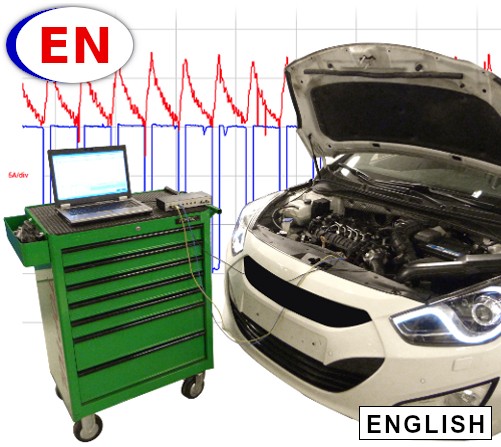 Electrical components inside a car
Electrical components inside a car
8. How to Choose the Right Car Diagnostic Tool Training Program?
Selecting the right car diagnostic tool training program is essential for achieving your learning goals. Consider the following factors when making your decision:
- Curriculum: Ensure the program covers the topics and skills you need to learn.
- Instructors: Look for experienced instructors with a strong background in automotive diagnostics.
- Hands-On Experience: Choose a program that provides ample hands-on experience using diagnostic tools.
- Accreditation: Consider programs that are accredited by reputable organizations in the automotive industry.
- Cost: Compare the cost of different programs and consider your budget.
- Reviews: Read reviews from other technicians who have completed the program to get an idea of its quality.
9. Common Rail Fuel System
This online training module in common rail technology takes you through the systems function and construction. It presents to you the common rail direct injection advantages, and teaches you the basics of common rail troubleshooting and diagnostics. Learn more with this online training module, and become a diesel injection expert.
Visit Prodiags for more information >
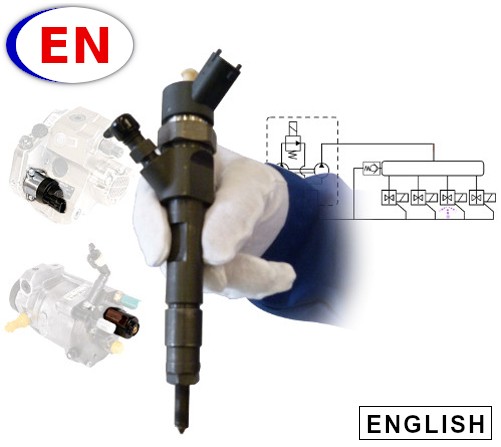 Common rail technology inside a car engine
Common rail technology inside a car engine
10. What Diagnostic Tools are Covered in Car Diagnostic Tool Training?
Car diagnostic tool training typically covers a range of diagnostic tools, including:
- Scan Tools: Used to read diagnostic trouble codes (DTCs) and view live data from vehicle sensors.
- Multimeters: Used to measure voltage, current, and resistance in electrical circuits.
- Oscilloscopes: Used to analyze electrical signals and waveforms.
- Pressure Testers: Used to measure pressure in various vehicle systems, such as fuel and cooling systems.
- Smoke Machines: Used to detect leaks in vacuum and exhaust systems.
- Compression Testers: Used to measure engine compression.
11. EOBD/OBD-II Self-diagnostics
If you want to develop your own diagnostic skills and perform diagnostics, you will need to know the structure and function of EOBD/OBD-II Self-Diagnostics. This study course is for you if you want to make the most effective use of OBD-standard diagnostics.
Visit Prodiags for more information >
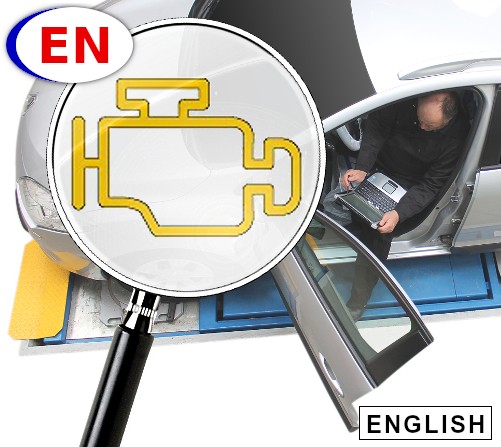 EOBD/OBD-II self-diagnostics function in a car
EOBD/OBD-II self-diagnostics function in a car
12. How Does Car Diagnostic Tool Training Improve Shop Efficiency?
Car diagnostic tool training can significantly improve shop efficiency by:
- Reducing Diagnostic Time: Skilled technicians can quickly identify and resolve issues, reducing the time spent on diagnostics.
- Minimizing Errors: Accurate diagnostics reduce the risk of misdiagnosis and unnecessary repairs, saving time and money.
- Increasing Throughput: Faster turnaround times allow shops to service more vehicles, increasing revenue.
- Improving Customer Satisfaction: Efficient and accurate repairs lead to higher customer satisfaction and repeat business.
- Reducing Warranty Claims: Proper diagnostics and repairs reduce the likelihood of warranty claims, saving the shop money.
13. What are the Career Opportunities After Car Diagnostic Tool Training?
Completing car diagnostic tool training can open up a variety of career opportunities in the automotive industry:
- Diagnostic Technician: Specializing in diagnosing and repairing complex vehicle issues.
- Service Technician: Performing routine maintenance and repairs on vehicles.
- Automotive Electrician: Focusing on electrical system diagnostics and repairs.
- Shop Foreman: Supervising and coordinating the work of other technicians.
- Service Manager: Managing the service department of a dealership or repair shop.
- Mobile Diagnostic Technician: Providing diagnostic services to customers at their location.
14. Hybrid & Electric Vehicle Technology
To make sure you are safe, you have to know the basics of the different systems and how to find the recent information about a specific model. Electrical safety is key when working on EV and HEV. With this training model you learn how to perform your work correctly and safely.
Visit Prodiags for more information >
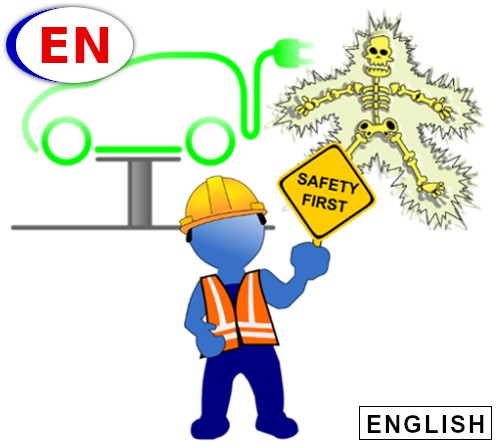 Hybrid & Electric Vehicle Technology
Hybrid & Electric Vehicle Technology
15. What are the Latest Trends in Car Diagnostic Tool Training?
Several trends are shaping the future of car diagnostic tool training:
- Advanced Driver-Assistance Systems (ADAS): Training on diagnosing and calibrating ADAS features, such as adaptive cruise control and lane departure warning.
- Electric Vehicle (EV) Diagnostics: Training on diagnosing and repairing electric vehicle systems, including batteries and electric motors.
- Remote Diagnostics: Using remote diagnostic tools to diagnose and repair vehicles remotely.
- Augmented Reality (AR): Using AR technology to provide technicians with real-time diagnostic information and guidance.
- Artificial Intelligence (AI): Using AI to analyze diagnostic data and provide technicians with potential solutions.
16. How Can I Stay Updated with the Latest Car Diagnostic Technologies?
Staying current with the latest car diagnostic technologies is crucial for automotive professionals. Here are some tips:
- Attend Industry Conferences: Attend conferences and trade shows to learn about new tools and technologies.
- Read Trade Publications: Subscribe to automotive trade publications to stay informed about industry trends.
- Take Continuing Education Courses: Enroll in continuing education courses to update your skills and knowledge.
- Join Online Forums: Participate in online forums and communities to connect with other technicians and share information.
- Follow Industry Experts: Follow industry experts on social media to stay updated on the latest developments.
17. What are the Costs Associated with Car Diagnostic Tool Training?
The costs associated with car diagnostic tool training can vary depending on the type of training and the provider. Here are some typical costs:
-
Online Courses: $50 – $500 per course.
-
Hands-On Workshops: $500 – $2,000 per workshop.
-
Certification Programs: $1,000 – $5,000 per program.
-
Community College Programs: $1,000 – $10,000 per year.
-
According to a survey by the National Institute for Automotive Service Excellence (ASE), technicians who invest in training and certification earn significantly more than those who do not.
18. Brake Service and Maintenance
Every mechanic has to master the basics of brake servicing and be able to perform it on different brake system structures, be this an older passenger car or a new electric car.
Visit Prodiags for more information >
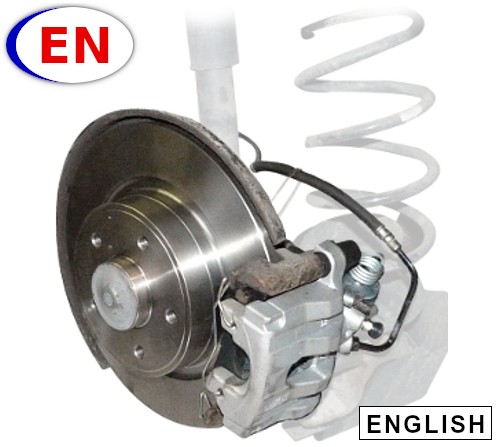 Brake Service and Maintenance
Brake Service and Maintenance
19. How to Get Certified in Automotive Diagnostics?
Several organizations offer certification in automotive diagnostics, including:
- National Institute for Automotive Service Excellence (ASE): ASE offers a range of certifications for automotive technicians, including diagnostic certifications.
- Original Equipment Manufacturers (OEMs): Many OEMs offer certification programs for technicians who work on their vehicles.
- Professional Organizations: Professional organizations, such as the Automotive Service Association (ASA), offer certification programs for automotive professionals.
20. Starting and Start-Stop System
Understanding the Starter System’s function and control circuit is essential for a mechanic when troubleshooting a vehicle that won’t start. Newer vehicles also has a Start-Stop function, which reduces emissions and noise.
Visit Prodiags for more information >
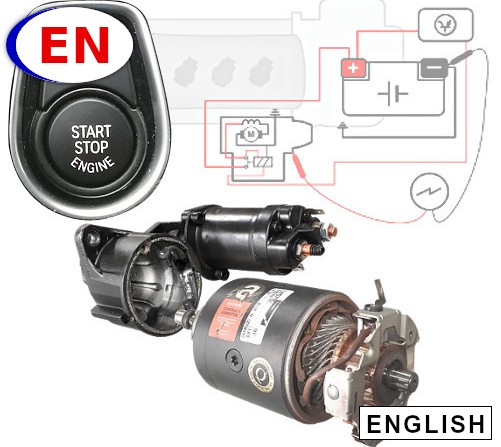 Starting and Start-Stop System
Starting and Start-Stop System
21. Tyre Pressure Monitoring System
Do you know the difference between indirect tire pressure monitoring systems and direct tire pressure monitoring systems? Learn this and much more in this online training module about TPMS.
Visit Prodiags for more information >
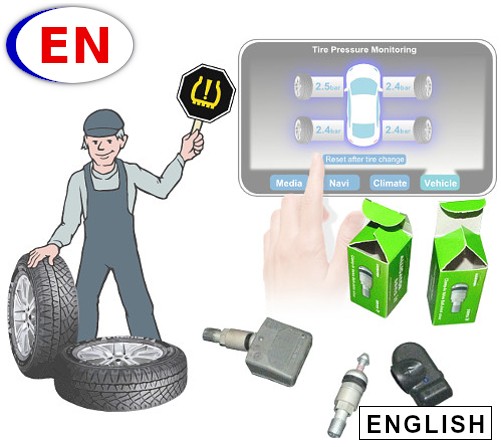 Tyre Pressure Monitoring System
Tyre Pressure Monitoring System
22. What are Some Tips for Success in Car Diagnostic Tool Training?
Here are some tips for success in car diagnostic tool training:
- Stay Focused: Pay attention in class and avoid distractions.
- Take Notes: Take detailed notes to help you remember important information.
- Ask Questions: Don’t be afraid to ask questions if you don’t understand something.
- Practice Regularly: Practice using diagnostic tools on actual vehicles as much as possible.
- Seek Help: Seek help from instructors or classmates if you’re struggling with the material.
- Stay Motivated: Stay motivated by setting goals and tracking your progress.
23. Light Vehicle Proactive Maintenance
You are involved in class B driving instruction, giving a young person driving instruction, and you would like to learn how to maintain your vehicle in a good condition and avoid future problems, this module has been developed for you to achieve these goals.
Visit Prodiags for more information >
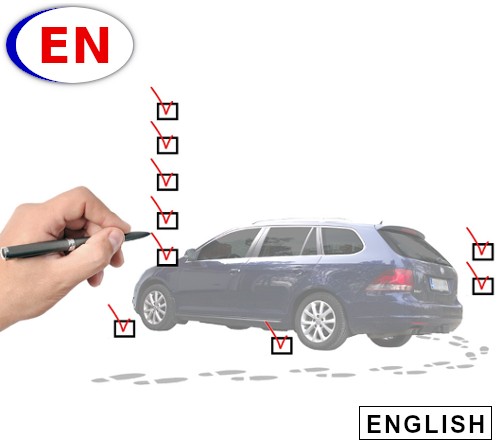 Light Vehicle Proactive Maintenance
Light Vehicle Proactive Maintenance
24. Where Can I Find Car Diagnostic Tool Training Programs?
You can find car diagnostic tool training programs at:
- Community Colleges: Many community colleges offer automotive programs that include diagnostic training.
- Technical Schools: Technical schools offer specialized training in automotive diagnostics.
- Online Training Providers: Online training providers offer a variety of car diagnostic tool training courses.
- Diagnostic Tool Manufacturers: Diagnostic tool manufacturers often offer training on their tools.
- Automotive Associations: Automotive associations, such as ASA, offer training programs for automotive professionals.
25. Workshop Safety
Introducing occupational safety to industry-specific objects and special requirements makes studying truly effective and meaningful even if you don’t have years of work experience.
Visit Prodiags for more information >
 Workshop Safety
Workshop Safety
26. Tyre, Rims, and Tyre Work
When working on the vehicle’s tyres and carrying out seasonal changing of tyres, you need to know the technical characteristics of tyres and wheel rims.
Visit Prodiags for more information >
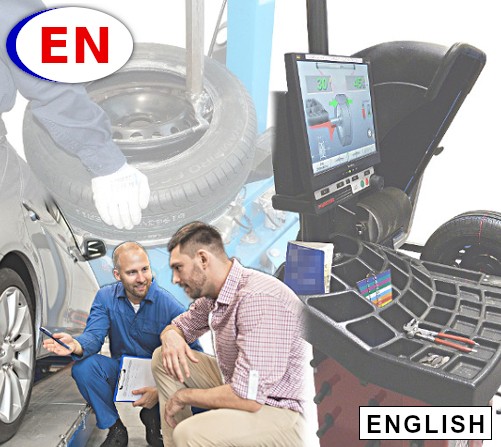 Tyre, Rims, and Tyre Work
Tyre, Rims, and Tyre Work
27. Case Study: The Impact of Car Diagnostic Tool Training
A local auto repair shop decided to invest in car diagnostic tool training for its technicians. Before the training, technicians often struggled to accurately diagnose complex vehicle issues, leading to longer repair times and dissatisfied customers.
After the training, technicians were able to diagnose problems more quickly and accurately. Repair times decreased by 20%, and customer satisfaction scores increased by 15%. The shop also saw a significant reduction in warranty claims, saving the business money.
This case study illustrates the positive impact that car diagnostic tool training can have on shop efficiency, customer satisfaction, and profitability.
28. Charging System and Starter Batteries
Checking the battery and the charging system’s condition is always the starting point for all troubleshooting in other electrical systems.
Visit Prodiags for more information >
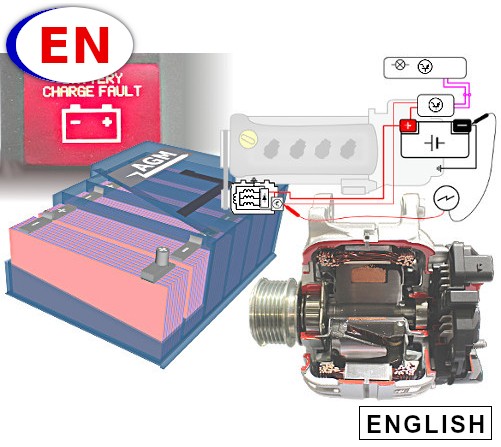 Charging System and Starter Batteries
Charging System and Starter Batteries
29. Additional Resources for Car Diagnostic Tool Training
Here are some additional resources for car diagnostic tool training:
- Automotive Service Association (ASA): ASA offers training programs, certifications, and resources for automotive professionals.
- National Automotive Technicians Education Foundation (NATEF): NATEF accredits automotive training programs and provides resources for educators and students.
- SAE International: SAE International develops standards and resources for the automotive industry, including diagnostic tools and technologies.
30. Diesel Exhaust Gas Technology
Learn everything you need to know about these technologies and become an expert in the field with this online training module. Learn how the systems work, and how to diagnose them in case of a possible fault.
Visit Prodiags for more information >
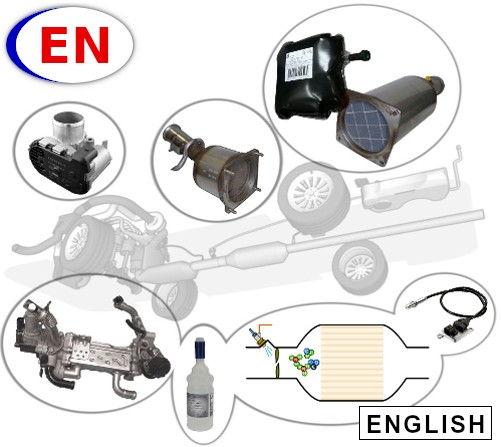 Diesel Exhaust Gas Technology
Diesel Exhaust Gas Technology
31. HV Vehicle Technologies – Toyota Prius PHEV 2014
Learn what you need to know about the construction of the vehicle, and how to find the recent manufacturer instructions for servicing and repairing the vehicle.
Visit Prodiags for more information >
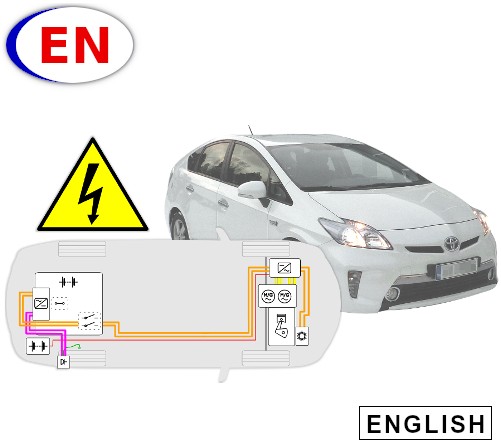 HV Vehicle Technologies – Toyota Prius PHEV 2014
HV Vehicle Technologies – Toyota Prius PHEV 2014
32. Workshop Waste Sorting and Recycle
The maintenance workshop and the brands it represents should treat the recycling of waste and working in an environmental friendly way as a very important aspect of its business.
Visit Prodiags for more information >
 Workshop Waste Sorting and Recycle
Workshop Waste Sorting and Recycle
33. Electricity
In this study module we repeat the basic overview of electrical engineering and have added information on the use of a multimeter for you to learn.
Visit Prodiags for more information >
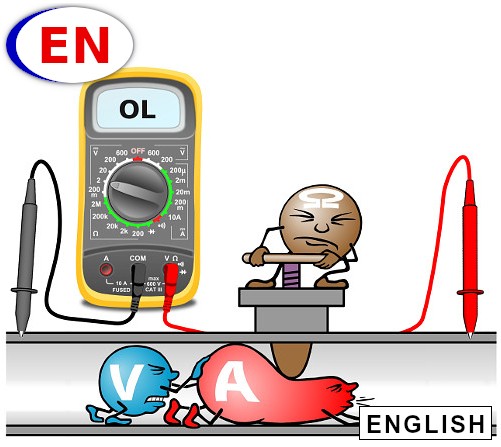 Electricity
Electricity
34. Electronics
A mechanic has to understand the function of the components and circuits, to be able to perform troubleshooting.
Visit Prodiags for more information >
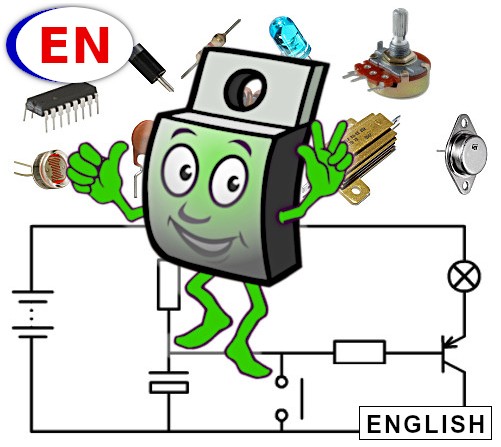 Electronics
Electronics
35. Maintenance Service
Knowing the basics of performing services is a crucial thing when working in a workshop. With this maintenance mechanic training you learn the correct order of the worksteps to be effective at you work, and ensure that you are doing a proper job.
Visit Prodiags for more information >
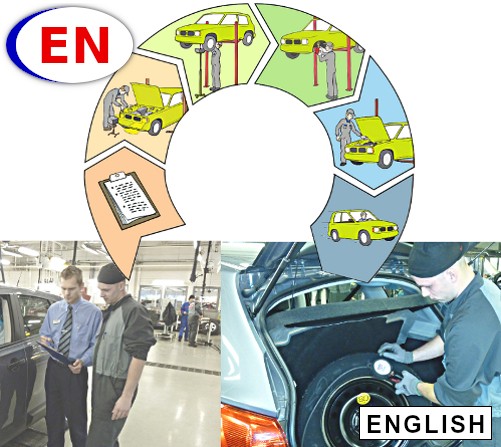 Maintenance Service
Maintenance Service
36. Frequently Asked Questions (FAQs) About Car Diagnostic Tool Training
Q1: What type of car diagnostic tool is right for me?
The right diagnostic tool depends on your experience level, the types of vehicles you work on, and your budget. Scan tools are a good starting point for basic diagnostics, while more advanced tools like oscilloscopes are needed for complex issues.
Q2: How long does car diagnostic tool training take?
The duration of training can vary from a few days for basic courses to several months for comprehensive certification programs.
Q3: Is car diagnostic tool training worth the investment?
Yes, car diagnostic tool training is a worthwhile investment that can lead to higher earning potential, increased job security, and greater customer satisfaction.
Q4: Can I learn car diagnostics online?
Yes, many reputable online training providers offer car diagnostic tool training courses.
Q5: What are the prerequisites for car diagnostic tool training?
Some programs may require a basic understanding of automotive systems, while others are designed for beginners.
Q6: How often should I update my diagnostic skills?
It’s recommended to update your diagnostic skills regularly to keep up with the latest technologies and techniques.
Q7: What is the best way to prepare for car diagnostic tool training?
Reviewing basic automotive concepts and familiarizing yourself with diagnostic tools can help you prepare for training.
Q8: Will car diagnostic tool training help me get a job?
Yes, car diagnostic tool training can make you more competitive in the job market and increase your chances of getting hired.
Q9: What are the key skills I will learn in car diagnostic tool training?
Key skills include using diagnostic tools, interpreting diagnostic data, troubleshooting techniques, and understanding vehicle systems.
Q10: How can I find the best car diagnostic tool training program near me?
Search online for local community colleges, technical schools, and training providers that offer car diagnostic tool training programs.
Conclusion: Invest in Your Future with Car Diagnostic Tool Training
Investing in car diagnostic tool training is a strategic move for automotive professionals looking to advance their careers and stay competitive in the industry. By acquiring the necessary skills and knowledge, technicians can improve their diagnostic accuracy, increase shop efficiency, and enhance customer satisfaction. At CAR-TOOL.EDU.VN, we are committed to providing comprehensive training resources to help you achieve your goals.
Ready to elevate your automotive diagnostic skills? Contact CAR-TOOL.EDU.VN today for expert guidance on selecting the right training programs and tools. Our team is here to help you navigate the world of car diagnostics and achieve your professional aspirations.
Contact us:
- Address: 456 Elm Street, Dallas, TX 75201, United States
- WhatsApp: +1 (641) 206-8880
- Website: CAR-TOOL.EDU.VN
Let CAR-TOOL.EDU.VN be your partner in success. Get in touch now and take the first step towards becoming a proficient and sought-after automotive diagnostic expert. Gain diagnostic proficiency and repair expertise.